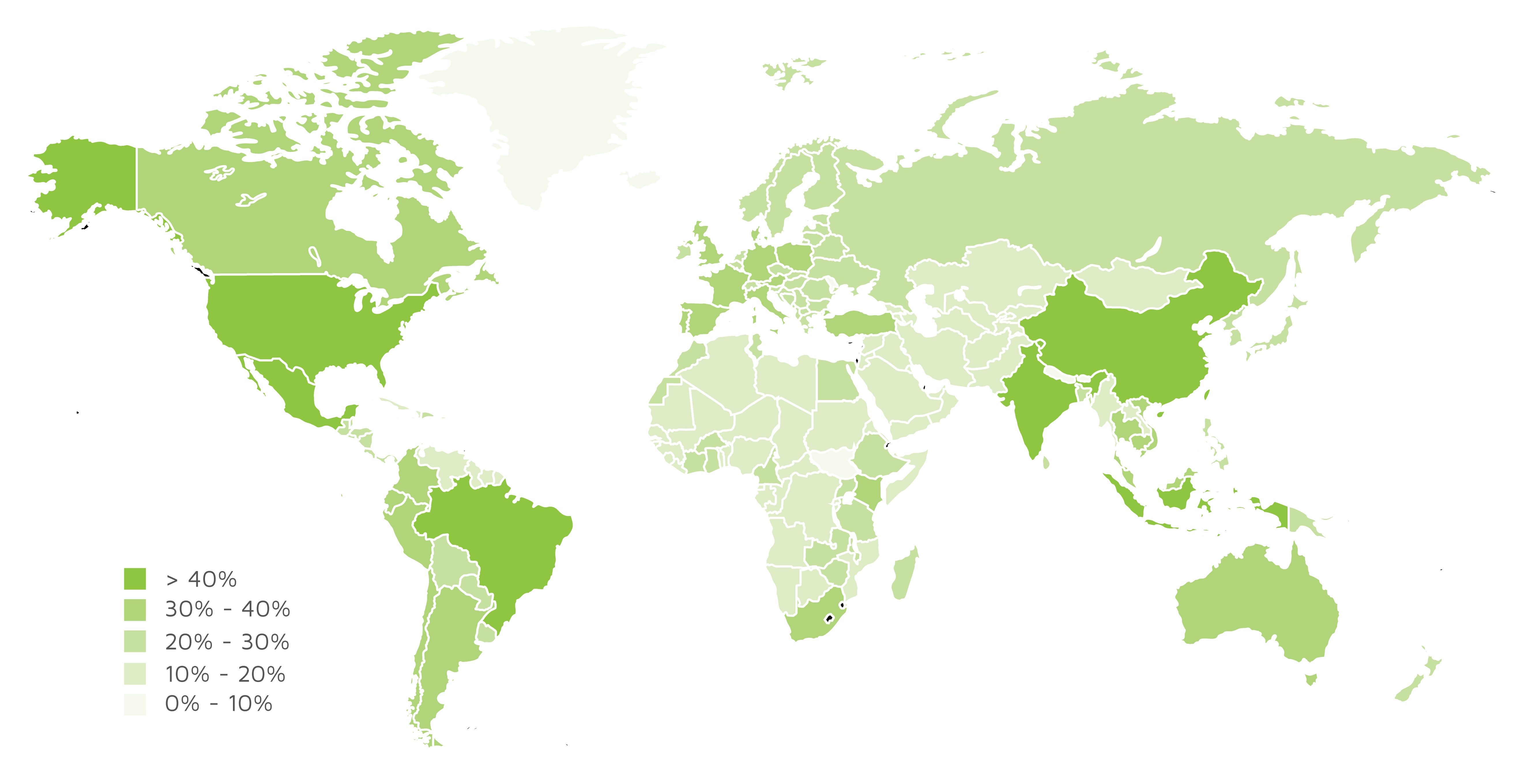Growth advanced by international trade is not enough for equality and social progress, as the expansion of businesses fails to address negative environmental and social effects. To minimize the adverse impact of trade, the benefits from commerce should be made more inclusive and sustainable. A recent report published by UN Conference on Trade and Development describes how Voluntary Sustainability Standards can serve as a tool, making the global value chain more sustainable. However, the same report states, developing countries still face obstacles while struggling to implement these norms.
Trade externalities
Trade is recognized as a core factor towards achieving sustainable development goals.
International trade has been rapidly growing and changing since 1990, and today, about 70% of international trade is done through global value chains, where fragments and components are traded between countries before being combined into final goods.
Despite the economic progress and the expansion of international trade, hazardous workplaces exist and inequalities are still a challenge. Based on recent estimates, today there are 152 million children in labor and 25 million people in forced labor around the world. Therefore, the world needs to be transformed to a more sustainable path of consuming, manufacturing and trading.
Barriers to standards
A recent report entitled “Better trade for sustainable development” states transformation to sustainable trade and value chains happens when negative effects are mitigated, ensuring trade yields positive social, economic, and environmental benefits. The same report presents a particular tool called Voluntary Sustainability Standards, which consists of labeling programs, private standards, and certification schemes.
The standers are important, as they connect developing and developed countries. However, the report states, emerging economies experience several barriers while implementing the norms.
According to the report, one of the major barriers for developing countries is the cost of obtaining the Certificate. Voluntary Sustainability Standards are expensive, as to get certified the companies in emerging countries should undertake major modifications in their daily organization practices to fulfill norms and preconditions. Furthermore, another obstacle on the path to sustainable trade is the lack of interest to undergo the certification. The companies refuse to be certified, as in many cases the economic impacts of the certificate are uncertain. In other words, the organizations agree to get certified only if they expect to increase the income or to have access to new markets. Other obstacles companies face are related to poor governance institutions and socio-political resistance. In many cases, companies face governance gaps while implementing the norms. The challenge is particularly common in developing economies.
Today, Voluntary Sustainability Standards are found in all countries, but, however, the number of active Standards vary significantly across countries.
Fig.1. VSS adoption intensity map per country (as a percentage of all VSS)


